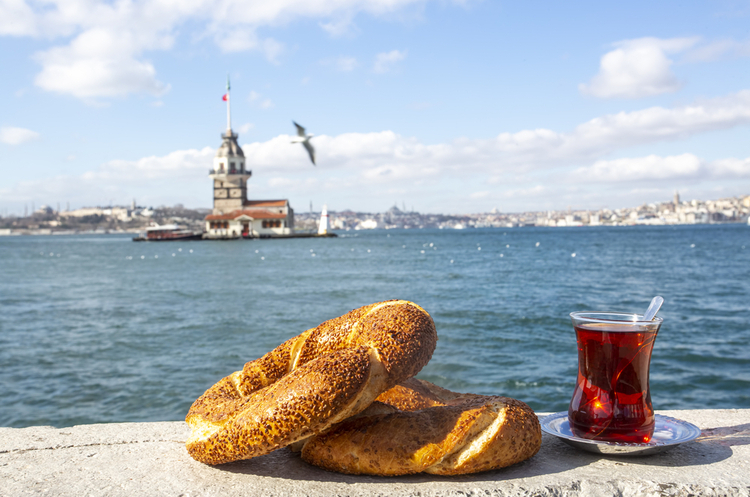Mind the closing markets: How the 130% import duty in Turkey will affect Ukrainian agri-exports
Protective measures introduced by the Turkish Republic reflect market conditions and a touch of politics
After two years of preferential treatment, Turkey has reinstated import duties on certain types of grains. A 130% tariff takes effect from 1st May, covering wheat, barley, rye, oats, sorghum, and maize. President Recep Tayyip Erdoğan's decision was published on 25th April in the Official Gazette.
The zero-duty period ended on 30th April, and until the last moment, it remained unclear whether it would be extended. However, traders and brokers in private conversations did not conceal their serious doubts about it.
The restrictive measures aim to protect the local agricultural sector ahead of the arrival of the new harvest. "Considering changes in harvest conditions and global prices, duties on wheat, maize, and barley have been changed to 130% to protect and stimulate domestic production," according to the official statement. The introduced duty threshold is effectively a barrier, historically unprecedented, and significantly exceeding previous rates: +45% on wheat, +25% on maize, and +35% on barley.
Turkey lowered import duties on grain at the end of 2020, during the COVID-19 pandemic, to reduce prices in the domestic market. A year ago, rates were entirely abolished to compensate for a sharp, almost 30% drop in harvest due to record drought.
Mind analysed how the jump in tariff restrictions from 0 to 130% will affect the export of Ukrainian grain, one of Turkey's main customers.
Does the officially stated reason for the return of grain import duties represent the facts? Yes, protecting domestic producers before the harvest of the new crop is the main reason for stricter control over agricultural product imports. Wheat and barley harvesting in Turkey begins in May. This year, unlike the previous season, favourable conditions for the production of cereals – winter crops in general, and hard wheat in particular – have been established.
However, it is also essential to understand that the import duty was reinstated two weeks before the presidential elections in Turkey – and this gesture may be positively received by voters.
For the same purpose, large energy and infrastructure projects that the government plans to implement have recently been announced – by this, of course, the current president is meant.
Recep Tayyip Erdoğan has been in power since 2014. And now, on the eve of his third election, public opinion polls are not encouraging.
Is there a connection between the Turkish import duty and the restrictive measures imposed a week earlier on Ukrainian grain by European Union countries? There is no direct connection, as there is currently no observed problem with stocking, especially with Ukrainian grain, as complained by Polish and other Eastern European farmers. Furthermore, Turkish processors actively use Ukrainian grain.
The restrictive measures are preventive, and their introduction is related to good harvest forecasts and political timing. However, it is not ruled out that the grain issue's intensity in Europe could have been an additional stimulus.
How much grain has Ukraine supplied to Turkey? According to the State Customs Service, in the quarter one of 2023, Turkey imported Ukrainian wheat worth $168.8 million, which accounts for 17.7% of all wheat exported from Ukraine. Barley was sold for $52 million, equivalent to over 40% of the export of this category.
What consequences will the introduction of an effective barrier duty have on Ukrainian agri-exports to Turkey? Not critical, as Turkey is only the final recipient of Ukrainian products in specific cases. About 95% of imports of the specified Ukrainian categories are imported under inward processing procedure for sale in third countries or for processing into flour and further export, within which a zero duty applies.
Does russian (and partially stolen Ukrainian grain) also fall under tariff restrictions? Turkey is one of russia’s most important trading partners, of which there are very few left in the world. And unlike African countries, Turkey is a creditworthy buyer.
This marketing year (ending in June 2023), russia supplied 10 million tonnes of grain to Turkey, of which 7.2 million tonnes were wheat.
russian and ersatz-russian grain is subject to import quotas. However, if wheat is purchased for domestic processing and further export of the finished product, this raw material is not subject to additional taxation. Transit is also not taxed.
Is a duty-free regime preserved for someone or does everyone trade on equal terms? Yes, there are exceptions to this regime. A zero rate is maintained for Bosnia – evidently for geopolitical reasons. A reduced rate of 16.2% is applied to some agricultural items from Singapore. This may be a compromise measure to balance trade relations in other sectors – for example, the supply of Turkish fittings to the city-state.
Which agricultural categories does Ukraine import from Turkey? In the first three months of 2023, according to the State Customs Service, Ukraine imported agri-food products worth $1.79 billion.
Turkey ranks second in the rating of agri-importers to Ukraine with a supply volume of $202 million (after Poland with an indicator for the first quarter of $232 million).
It’s main agricultural import articles are fish and seafood, fruits, berries and nuts, seeds and fruits of oil crops, alcoholic and non-alcoholic beverages, tobacco products, and vegetables. These categories account for about 62% of all agricultural imports, according to the Institute of Agricultural Economics.
If you have read this article to the end, we hope that means it was useful for you.
We work to ensure that our journalistic and analytical work is of high quality, and we strive to perform it as competently as possible. This also requires financial independence. Support us for only UAH 196 per month.
Become a Mind subscriber for just USD 5 per month and support the development of independent business journalism!
You can unsubscribe at any time in your LIQPAY account or by sending us an email: [email protected]



